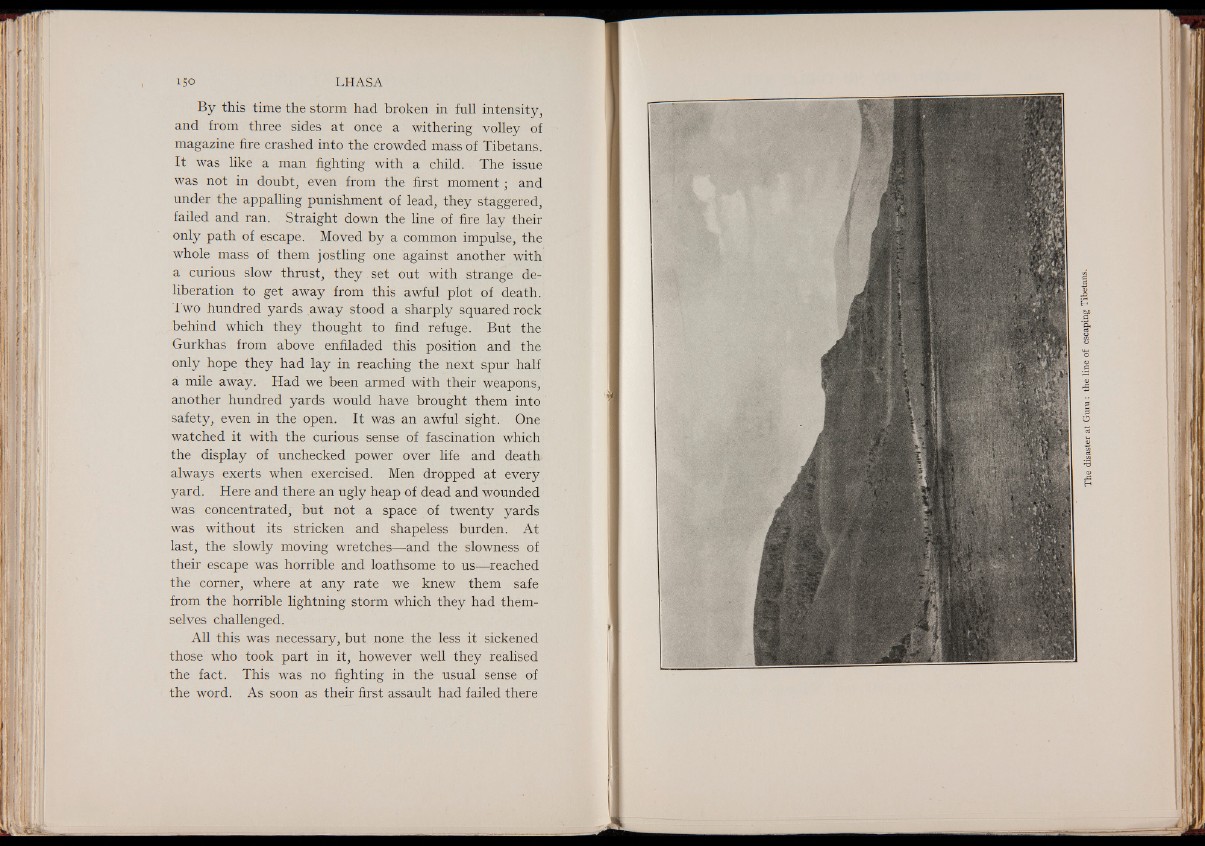
By this time the storm had broken in full intensity,
and from three sides at once a withering volley of
magazine fire crashed into the crowded mass of Tibetans.
It was like a man fighting with a child. The issue
was not in doubt, even from the first moment; and
under the appalling punishment of lead, they staggered,
failed and ran. Straight down the line of fire lay their
only path of escape. Moved by a common impulse, the
whole mass of them jostling one against another with
a curious slow thrust, they set out with strange deliberation
to get away from this awful plot of death.
Two hundred yards away stood a sharply squared rock
behind which they thought to find refuge. But the
Gurkhas from above enfiladed this position and the
only hope they had lay in reaching the next spur half
a mile away. Had we been armed with their weapons,
another hundred yards would have brought them into
safety, even in the open. It was an awful sight. One
watched it with the curious sense of fascination which
the display of unchecked power over life and death
always exerts when exercised. Men dropped at every
yard. Here and there an ugly heap of dead and wounded
was concentrated, but not a space of twenty yards
was without its stricken and shapeless burden. At
last, the slowly moving wretches— and the slowness of
their escape was horrible and loathsome to us— reached
the corner, where at any rate we knew them safe
from the horrible lightning storm which they had themselves
challenged.
All this was necessary, but none the less it sickened
those who took part in it, however well they realised
the fact. This was no fighting in the usual sense of
the word. As soon as their first assault had failed there